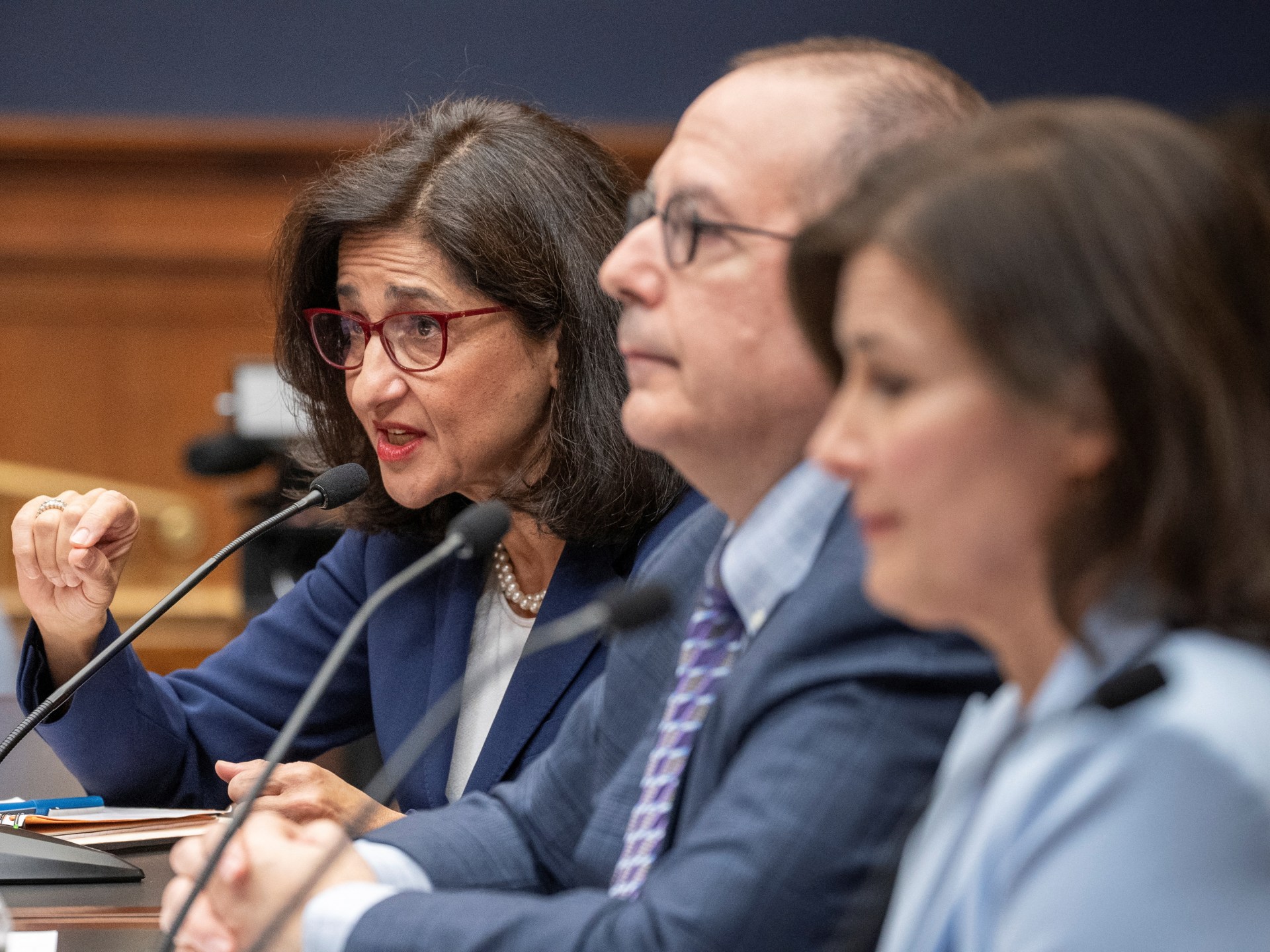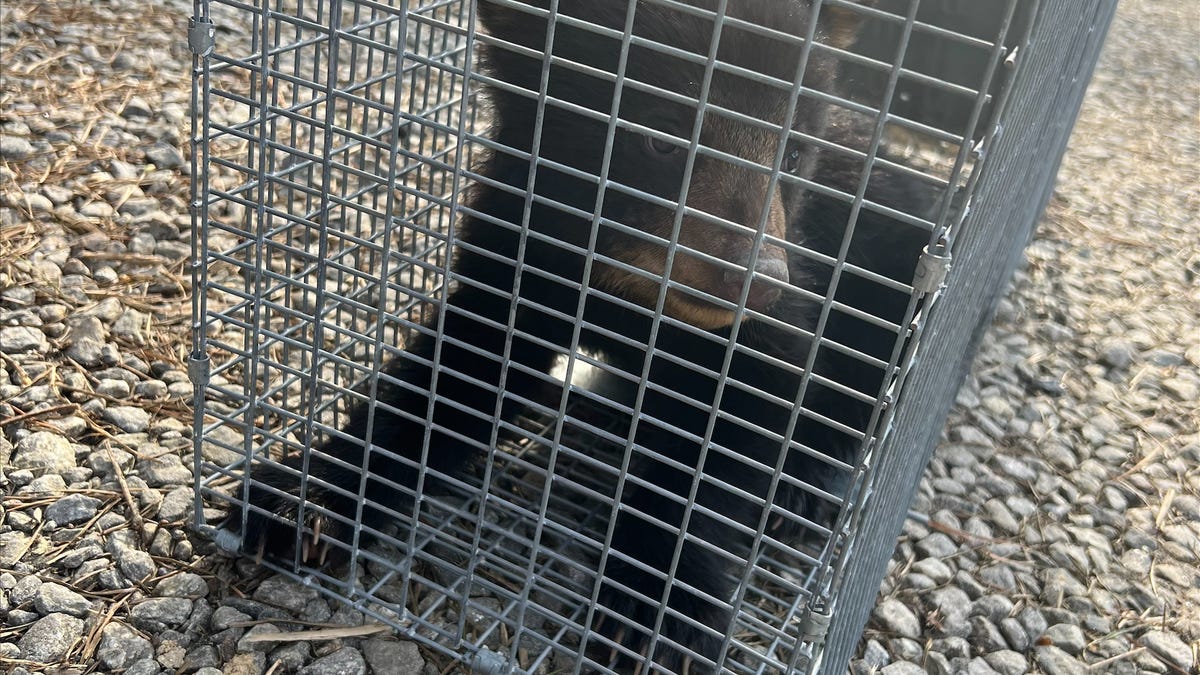Montana
Feds bust Montana man for super-sheep semen scheme

A Montana man pleaded guilty on Tuesday to two felony wildlife crimes that each carry a maximum of five years in prison and a fine of up to $250,000, ABC reported on Thursday.
His crime: a seven-year plot to genetically engineer, via cloning and ovine surrogacy, a new sheep species for trophy hunters to shoot.
Arthur “Jack” Schubarth, 80, of Vaughn, Montana, conspired with at least five other people between 2013 and 2021 to import genetic material from the largest sheep species in the world—the Marco Polo argali sheep—from Kyrgyzstan to the United States. He then sent the material to a lab to create cloned embryos to implant in the wombs of his own natural American ewes.
The result of the scheme was a genetically pure Marco Polo argali sheep born to his own ewe on his own ranch. Schubarth named the sheep “Montana Mountain King”— MMK for short—and then used MMK’s semen to artificially inseminate other species of ewes—themselves illegal to possess in Montana—to create novel, hybrid sheep, which he smuggled in and out of Montana using forged veterinary documents.
The authorities were not amused. “The kind of crime we uncovered here could threaten the integrity of our wildlife species in Montana,” said Ron Howell, Chief of Enforcement for Montana Fish, Wildlife & Parks (FWP). Marco Polo argali sheep, such as MMK, are not allowed in Montana to protect native sheep from foreign diseases and to prevent hybridization, presumably because the native species are endangered.
The statement issued by the Department of Justice on Tuesday was scant on details about the lab that apparently cloned MMK’s predecessor for Schubarth, though court documents did provide the home states of five of Schubarth’s co-conspirators: three were from Texas, one was from Montana, and one was from Minnesota.
Cloning is a rapidly developing technology
Sheep have held a special place in the cloning imagination since 1996 when a domestic sheep named Dolly was the first animal to be successfully cloned from an adult cell.
In contrast to the MMK scheme, which authorities saw as a threat to the local, protected population of wild sheep, cloning has been proposed as a means to propagate endangered or even extinct species for which there is no viable reproduction chain.
In January 2018, scientists in China became the first to clone a primate, with the cloning of a macaque monkey. A year later, other scientists, also in China, created five cloned monkeys whose genetic code they had intentionally modified using gene-editing technology (CRIPR-Cas9).
The process of cloning a human being (Homo sapiens) would not, in principle, be categorically different from the process of cloning other primate species or other animals generally.
This technology raises ongoing and unsettled questions of bioethics.

Montana
Tackling the rising cost of housing in Montana together

More than 100 years ago, my grandparents made a life for our family on a homesteaded plot of land outside of Big Sandy that we still farm to this day. I’ve been blessed to call Montana home my entire life and to always have a place to rest my head after a hard day’s work. Unfortunately, finding an affordable place to live has become a challenge for far too many Montanans.
As I travel across Montana, I hear about how housing challenges are hurting working families. From Missoula to Kalispell to Bozeman, all the way to smaller communities like my hometown of Big Sandy, folks are struggling with rising costs and a shortage of affordable, accessible housing options. Across the state home prices are more than 70 percent higher today than they were just five years ago.
The issue of housing affordability impacts every Montanan. I’ve heard from seniors who worked hard and saved up their whole lives, but are now struggling with skyrocketing property taxes on the homes they have lived in for decades and raised their families in. We have hospitals and schools across our state that are unable to recruit workers because there is nowhere for our teachers, nurses, or even doctors to live. And young Montanans who want to build a family and a life in their hometowns aren’t able to afford to buy a home like their parents did, or to rent a place large enough to start a family.
It’s high time to address this issue so that we can make sure our state remains the Last Best Place for everyone who wants to put down roots here, not just for wealthy outsiders and those who can afford it.
That’s why I’ve worked with Republicans to introduce bipartisan legislation like my Rural Housing Service Reform Act and my PRICE Act, commonsense bills that would revitalize Montana’s affordable housing supply, improve federal rural housing programs, cut government red tape, and increase housing options for Montana families. And it’s why I recently rolled out a bipartisan bill to speed up the appraisal process across Montana so that we can help get more families in homes quicker.
I’m also fighting to make sure that Montana veterans and their families won’t have to worry about keeping a roof over their heads. In November, I demanded that the Biden Administration take immediate action to protect thousands of veterans and servicemembers using VA home loans who were facing foreclosure through no fault of their own. I’m proud that the VA answered my call by stopping these foreclosures, and I’ll continue to hold the Department accountable as it works to deliver a long-term solution.
There is also work that desperately needs to get done at the state level to help tackle our housing challenges. Rising property taxes that are hitting hard-working Montanans in their wallets must be addressed, and expanding veterans’ cottages in cities like Butte are critical projects that deserve complete support and funding. I hope that our state’s leaders will join me in looking for ways to bring down housing costs for working families and not give handouts and tax-breaks to the ultra-wealthy.
The Homestead Act that afforded my grandparents the opportunity to farm up in Big Sandy more than a century ago is proof that Congress can play a commonsense role in ensuring that any hardworking Montana family can afford to live in the towns they were raised in — which is so important to our Montana way of life.
That’s why I’ll continue to do all I can in Washington to help lower costs and boost housing supply across our state. Montana is the greatest state in the greatest country in the world, and together we can make sure future generations can continue to call the Last Best Place home.
Sen. Jon Tester, D-Montana, lives in Big Sandy.
Montana
MT Supreme Court rules laws, including one on transgender athletes, violate Board of Regents' authority

HELENA — The Montana Supreme Court has upheld a lower court ruling that found three bills from the 2021 state legislative session overstepped onto the authority of the Montana University System Board of Regents.
The most prominent of the bills was House Bill 112, which banned transgender female athletes at public schools from participating in women’s sports. A majority of justices agreed that bill was unconstitutional as applied to colleges and universities.
In addition to HB 112, the court also ruled against:
· House Bill 349, which limited how colleges and universities could discipline students for certain speech and when they can deny recognition to student organizations.
· A section of Senate Bill 319 that would have required student organizations that also function as political committees – specifically the advocacy group MontPIRG – to be funded through a fee that students can pay if they opt in, instead of one they are required to pay unless they opt out.
A large group of individuals and organizations filed suit over these bills. In their arguments, the plaintiffs made the case that the Montana Constitution gives the Board of Regents full authority to oversee the state’s university system, and that the bills infringed on that authority. In 2022, a district judge in Gallatin County sided with the plaintiffs.
Attorneys for the state argued the plaintiffs did not have legal standing to challenge the laws. On HB 112 specifically, they said the law was not targeting the Board of Regents or universities specifically, and that the board had not established a policy on transgender athletes.
Justice Ingrid Gustafson wrote in her ruling – joined by Chief Justice Mike McGrath and Justices Laurie McKinnon and Jim Shea – that the plaintiffs had established standing by showing they would be harmed by the bills, and that they could make the argument the bills unconstitutionally infringed on the Board’s authority even if the Board itself did not sue.
Gustafson said the Board of Regents had essentially expressed a judgment on how to handle transgender athletes by linking participation to NCAA and NAIA requirements. She said HB 112 does address elementary and high schools as well as colleges and universities, but that didn’t mean it wasn’t infringing on the Board.
“The Legislature cannot avoid Article X, § 9’s grant of power to the Board by simply adding non-MUS institutions to the law,” she wrote.
Gustafson also said, because the state had focused its arguments on stating HB 112 was not unconstitutional, they had essentially conceded on the other two bills, so the district court’s ruling against them should stand. The state said they centered their defense on the merits on HB 112 for briefing reasons, not because they were conceding the other bills were unconstitutional.
While four out of seven justices agreed to find the bills unconstitutional, they were split on whether the plaintiffs were entitled to receive attorney fees from the state. The district judge had ruled against the plaintiffs’ request. Because a majority of justices didn’t agree fees were warranted, that decision remained in place.
Justice Jim Rice wrote a dissenting opinion, in which he argued the plaintiffs did not have standing in the case and that only the Board of Regents itself should have had the authority to file suit claiming an infringement of its authority. Justice Dirk Sandefur agreed with Rice, but added his own short opinion saying that, if the plaintiffs did have standing, he would agree that the bills were unconstitutional as the majority had ruled.
Read the justices’ full opinions below:
Montana
Federal judge blocks Montana law on changing voter registrations
HELENA — A federal judge has blocked Montana from enforcing one section of a 2023 law that established requirements for voters changing their registration.
Last year, the Montana Legislature passed House Bill 892, sponsored by Rep. Lyn Hellegaard, R-Missoula. Supporters said the bill was intended to ensure people couldn’t vote twice in one election. While Montana already had a law in place saying no one could vote more than once in a single election, HB 892 added a specific prohibition on voting once in Montana and in an “equivalent election” in another state.
One provision of HB 892 said voters can’t “purposefully remain registered to vote in more than one place” and that they must provide their previous registration information when registering to vote at their new location.
MontPIRG and the Montana Federation of Public Employees sued, saying that language went beyond the goal of stopping double voting and left voters at risk of criminal penalties even if they never intended to vote twice. They argued the provision wasn’t clear about what was required of voters, and that some had legitimate reasons they might have registrations in more than one place.
Attorneys for the state, defending HB 892, said the law has been in effect and there hasn’t been any evidence it’s interfered with political participation, and that it would be a mistake to change the rules so close to the 2024 election.
U.S. District Judge Brian Morris said in a ruling Wednesday that the plaintiffs had shown a plausible case that the language was too broad. He put a preliminary injunction in place to stop the state from enforcing only the section on multiple registrations, allowing the rest of HB 892 to remain in effect. Morris said in his ruling that officials had testified that section wouldn’t substantially change the voter registration procedure in Montana, so temporarily blocking it wouldn’t create confusion for voters in this election.
Read the full ruling below:
-

 Movie Reviews1 week ago
Movie Reviews1 week agoMovie Review: The American Society of Magical Negroes
-

 World1 week ago
World1 week agoIf not Ursula, then who? Seven in the wings for Commission top job
-

 Kentucky1 week ago
Kentucky1 week agoKentucky first lady visits Fort Knox schools in honor of Month of the Military Child
-

 World1 week ago
World1 week ago'You are a criminal!' Heckler blasts von der Leyen's stance on Israel
-

 Politics1 week ago
Politics1 week agoTrump trial: Jury selection to resume in New York City for 3rd day in former president's trial
-

 News1 week ago
News1 week agoHouse passes bill requiring warrant to purchase data from third parties
-

 World1 week ago
World1 week agoColumbia University leaders face scrutiny over anti-Semitism on campus
-

 Politics1 week ago
Politics1 week agoFormer Wisconsin Democratic Rep. Peter Barca launches congressional comeback bid

















